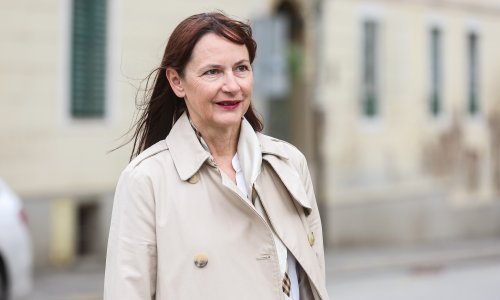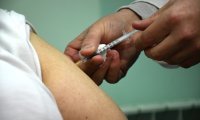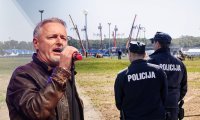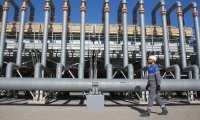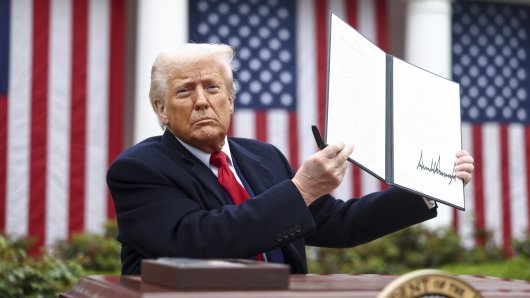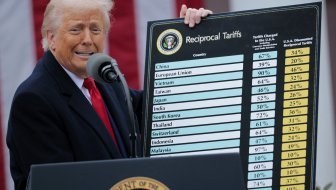Economic recovery and the re-employment of those who lost their jobs because of the economic crisis are the key priorities of the economic policy on which the SDP-HNS-IDS-HSU opposition coalition bases its election platform, whose goal is a five-per cent economic growth rate at the end of its four-year term.
Aside from stabilising economic growth and boosting competitiveness, the Alliance for Change coalition intends to provide room for new industrial processes with the end goal to increase output, GDP, exports and employment.
The coalition is firmly committed to renewing industry, increasing industrial output's share in GDP and directing at least 50 per cent towards export and using as much as possible the opportunities Croatia will have upon entering the common European market, Radimir Cacic, president of the Croatian People's Party (HNS), said at the presentation of the election platform.
"Industrialisation is the path for Croatia, that's Croatia's tradition and legacy," said Zoran Milanovic, president of the Social Democratic Party (SDP), stressing that the coalition's entire platform focused on strong and sustainable economic growth and sensible spending of state funds, without which, he added, Croatia would not be successful in the European Union.
"Croatia's biggest chance is openness to ideas and readiness to play the game," he said.
Cacic said the essence of the coalition's economic model comprised investment, industry, exports, innovation, and integration. He announced a reduction of illiquidity, saying that the state, as the biggest creditor, should take a more active role in that, even by entering the ownership structure of companies facing liquidation.
Cacic announced the development of modern industrial sectors, while retaining traditional industries, as well as tax relief and other ways of reducing the economy's costs, while increasing its competitiveness.
Cacic announced a greater investment potential and a radical removal of barriers to new investment. He said investments should focus on tourism - by building hotels along the entire coast; on energy - by building hydroelectric power plants, including four on the Sava, as well as gas storage spaces and pipelines, and by exploiting renewables; on infrastructure - corridors Vb and X; and on irrigation and environmental protection.
Cacic said about HRK 15 billion was planned for those investments, the majority of which would be used by the end of the coalition's term of office.
"Those four development investment pillars are enough for increasing GDP by 2-4 per cent annually and the money will come from private donations, EU funds, our own and other sources as well as from public-private partnerships," Cacic said, stressing that it was also necessary to use the "currently dead" HRK 40 billion in the pension funds.
Asked by the press how the coalition intended to effect those investments, since it did not envisage major cuts or economies in public spending, Milanovic said the money was there, in pension funds, EU funds, public-private partnerships and other sources.
Milanovic said tourism offered a big chance and a lot of room for progress, especially by enabling people to live off tourism as a primary and no longer as an additional activity. He added that environmental protection would also be a priority but not by "choking" entrepreneurship.
Speaking of state incentives, Cacic said national interests would no longer be subordinated to particular ones, announcing a public administration reform through a mandatory evaluation of the performance curve of its employees.
Milanovic said the public administration reform would not mean "purges and revenge-seeking" but transforming it into a service for the citizens.
"People will have to work more and those who can't... We certainly won't be coming with brooms," said Cacic.
He announced a balanced tax system, a balanced distribution of the income and profit tax burden in relation to the capital which, he said, did not mean higher taxes.
The Alliance for Change coalition said it did not intend to privatise state companies of strategic importance. "Energy, power supply, forests and waters management and railways will remain state-owned. We will optimise the ownership portfolio, even allowing for the influence of private capital, but the state will remain the owner," said Cacic.
The coalition's leaders announced the revocation of privileged pensions for MPs, government members and Constitutional Court judges.
Croatian Pensioners Party (HSU) president Silvano Hrelja said the coalition, when it came to power, would do its utmost to bring the amount of the average pension close to that of the average salary by the end of its term and to finally index pensions to price growth. He announced the abolishment of a three-per cent tax on pensions exceeding HRK 5,000 as well as of penalisation for early retirement.
Milanovic pledged education affordable to everyone and open dialogue with the academic community about relations at universities, autonomy of their schools and the appointment of deans.
He pledged open dialogue with war veterans as well, "a fair treatment of the people who risked their lives for Croatia," saying that their entitlements would not be diminished. He added, however, that he did not want "intolerable mediation" but direct and open contact with as many veterans as possible.
The judiciary will be rid of any political influence, Milanovic said, stressing that the state's objective was not fighting corruption but a corruption-free society.
All four coalition leaders were agreed that their programme guaranteed a better Croatia, that it was not a magic wand and that there were no magical solutions, and that these were solutions their parties had been talking about for years.
"This is an election for faith and trust. There will be many similar ideas during the campaign, but the key is in the fight for citizens' trust and we believe that we are the ones who will win their trust," said Milanovic, adding that their coalition "symbolises a dawn, an awakening, a new beginning."
"We will build a happier and better home, I'm convinced of that. There will be mistakes, but I'm sure than in four years this country will look different, better and happier," said Istrian Democratic Party (IDS) vice president Damir Kajin.






